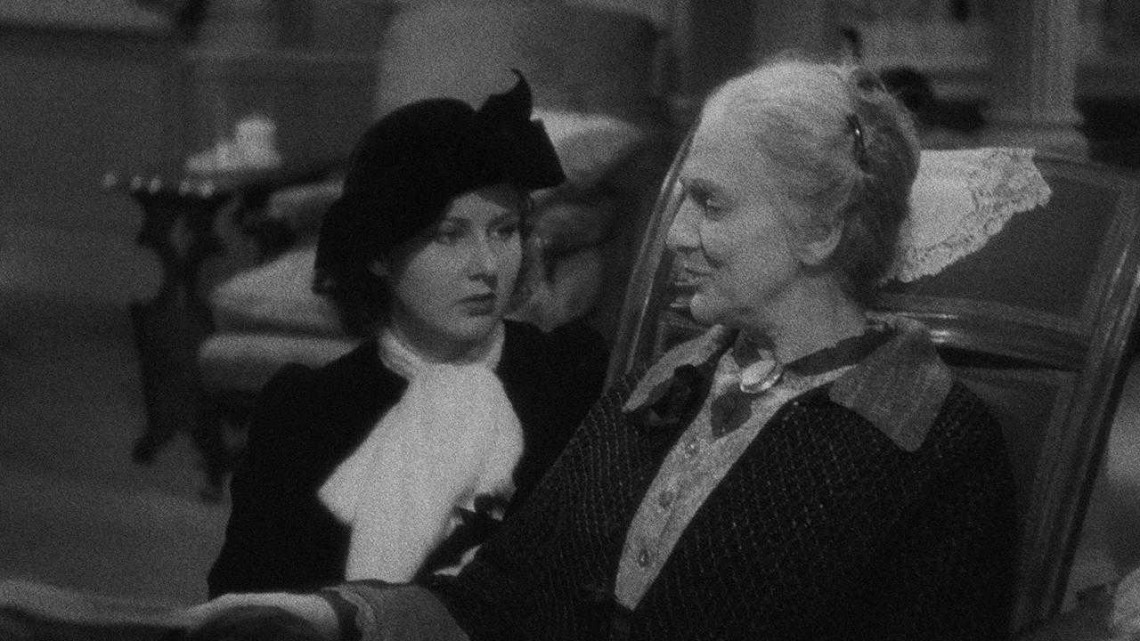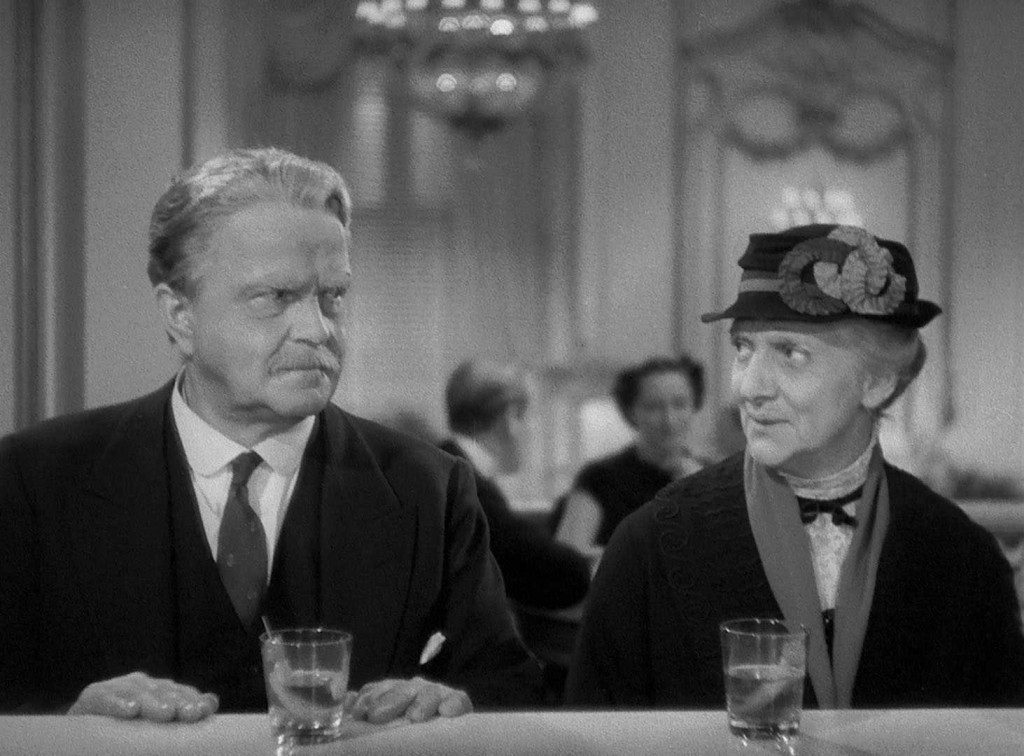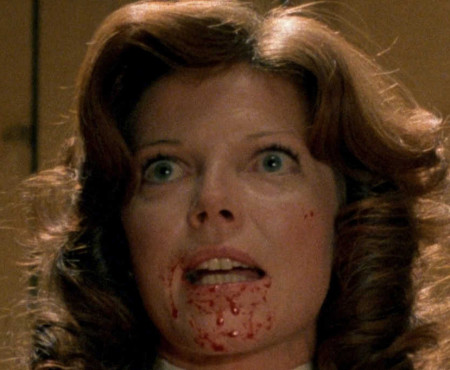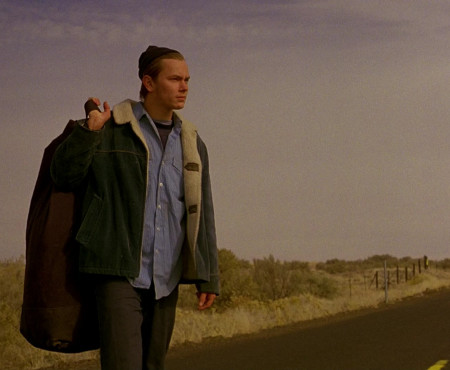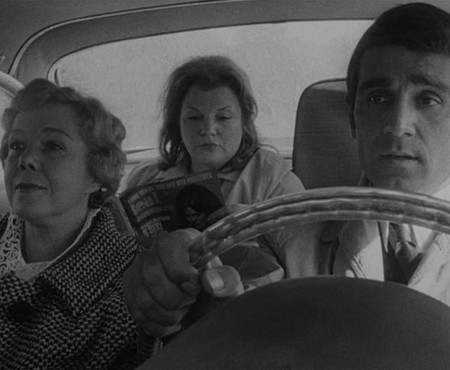Make Way for Tomorrow is a prime example of the cinema functioning as an emergency broadcast system. Its timelessness is shocking to behold nearly 80 years after its release in 1937, primarily because it suggests that humanity, for all its pride in evolution, remains unable to learn the value and power of true empathy. This is a film—now available on Blu-ray from the Criterion Collection—that is nearly unchallenged in its calm, careful, precise and intense ability to break your heart over the course of 90 minutes, presenting a clear conflict in the opening scene with an inevitable and terrible conclusion, which is reached in the daring and gut-wrenching closing moment. What was true in 1937 is true now, and will be true until the end of time: Our empathy extends further to strangers than it does to our flesh and blood, and that harsh truth comes to bite us in the ass by the end of our days.
Certainly, some elements of this Leo McCarey picture remain specific to the 1930s, but fewer than you might think. When Lucy and Bark Cooper (Beulah Bondi and Victor Moore) reveal to four of their five adult children—the fifth, Addie, is off in California, spoken of frequently but never seen or heard—that their house is being taken by the bank and they’ve only a few days to vacate the premises, it has the unmistakable tinge of the Great Depression. Bark, a bookkeeper, is said to have stopped working four years prior to the film’s events, but we can’t know for certain if the retirement was forced or not. All of the children want to help—really, they do—but their own lives get in the way.
George (Thomas Mitchell, best remembered as the klutzy uncle in Frank Capra’s It’s a Wonderful Life) seems to be the kindest of the children, but he and his wife Anita (and their rambunctious teenage daughter) only have enough room for one new occupant, and only enough patience to last them a month or two. Robert is immediately dropped as a possible source of help, introducing himself as a layabout who seems to still pretend he’s living in the Roaring Twenties. Nellie allows herself to use her grumpy husband—seen only once, choosing his own mother over his wife’s to see for an evening—as the excuse for needing at least a few months before she could even consider having her parents live with her. And Cora, initially a bit mousier than her siblings, is revealed to be the worst of all, a harridan who lets her ill father rest on an uncomfortable couch until a doctor arrives; then, she shuffles Bark to a nice bedroom in hopes that she can maintain appearances.
Make Way for Tomorrow is all about the necessity of maintaining appearances, of making sure as few feathers are ruffled, no matter what the consequences are. When George and Anita agree that the best course of action for their mother is to live in a 1930s-era version of a retirement home for women, Lucy finds out inadvertently and takes it upon herself to offer the idea up as her own; she wouldn’t want to make herself more of a burden to her son or cause him any undue awkwardness. (The scene, which takes place with roughly a half-hour left to go, is where McCarey and company begin to twist the knife just enough to start the waterworks, culminating in Lucy telling George that he was always her favorite child.) Nellie tries to keep up the lie that her husband will relent, because to come out with the truth would just be improper. When Lucy and Bark, reunited for one last evening, take a ride from a friendly stranger outside of a car dealership, they realize only too late that said stranger was a salesman looking for a commission; the salesman is the one who takes it upon himself to suggest he was only showing off the car. And so on.
By the third act, which focuses squarely on Lucy and Bark’s night out in New York, all the couple have left are their memories and their unwillingness to speak truth to the undeniable: This will almost certainly be the last day they spend together as a couple. Cora, unwilling to help any longer, is shipping her father out to live in California with Addie, who also doesn’t have room for more than one. Lucy refuses to tell Bark where she’s headed—in an earlier scene, Bark is read a letter from his wife describing the home as some kind of nightmare. But we know they’re headed away from each other for good. Their final moments together—the most honest Lucy and Bark are with each other, despite not acknowledging directly that this is their last goodbye—are shamelessly tear-jerking, but honest all the same.
What is most terrifying about this film, however, is how easy it is to spot ourselves in the personal melodrama playing out. From Rhoda, the surly granddaughter whose guard drops only after a brutal bit of honesty from Lucy, to Nellie, to George, all the way to Lucy and Bark: In a way, watching this film is like experiencing a sped-up dissertation on the circle of human existence. We are raised to be good and honest, we rebel against our parents, then we bring new life into the world, watch as it rebels against us, and end up as helpless as we started. Lucy and Bark are not so infirm that they need all-day hospital care—Bark’s cold goes away by the time we see him spending his last evening with his wife in the Big Apple—yet they are not able to free themselves from their family except for an hour or two. When George and Anita make peace with their decision to get rid of his mother, they look at themselves in the mirror, becoming visually aware that, in a short time, they will be just like Lucy and Bark. And with their luck, Rhoda won’t have enough room for them.
Nearly eight decades after it was initially released, Make Way for Tomorrow remains one of the most insightful and unflinching depictions of humanity at its most naked and selfish. (Unsurprisingly, Paramount Pictures begged McCarey to add a happy ending; McCarey was thankfully unwavering. When he won a Best Director Oscar that year for The Awful Truth, he told the Academy that the honor was great, but given to him for the wrong film.) We rely on our parents just long enough to learn how to become embarrassed by them, or, as the film says, how to be ashamed by them. There is no greater insight in the film than that uttered by Bark and a kindly old shopkeeper: “The world is full of schlemiels. And someone has to raise them.” Lucy and Bark Cooper’s children, on their own, may have deep wells of kindness and caring for the world around them; together, and faced with a greater challenge than entertaining friends, playing bridge or simply getting by, they crumble and turn cowardly. George and Anita look at themselves in the mirror, mentally wondering what they’ve done; Make Way for Tomorrow is a mirror to our own schlemiel-like tendencies.

















